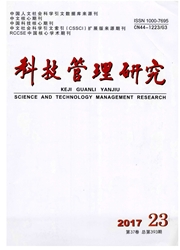

 中文摘要:
中文摘要:
目的对社区健康管理实验基地居民的主要慢性病控制现况和满意度、反应性、信任度指标进行分析,提出初步的防治对策。方法采用自行编制的调查问卷,内容包含2010年度社区居民慢性病的患病率、知晓率、管理率、行为矫正率、控制率和服药依从率指标,以及社区居民满意度、反应性和信任度指标,经由各社区健康管理实验基地专职负责人员填写。结果共调查1189456人,高血压患病率是8.01%,糖尿病患病率是4.41%。对上海、吉林两个地区的慢性病在6个方面进行比较,患病率、知晓率、管理率、控制率和服药依从率上海较高,行为矫正率则吉林较高。2009至2010年被调查对象高血压患病率下降,知晓率、管理率、行为矫正率、控制率和服药依从率则增长。满意度、反应性和信任度指标共调查2268人,对服务过程的满意度为93.43%,总体满意度为93.78%;对有隐私保护的反应性为94.41%,对基本环境设施舒适整洁的反应性为90.45%;对治疗服务方面的信任度为92.59%,对费用方面的信任度为93.98%,对机构总体信任度为92.76%。结论慢性病控制管理需要政府部门重视;要积极建立社区健康管理基地,加强慢性病管理;同时要从全科医生的规范化培养、掌握适宜技术、提高居民自我管理能力等多方面着手,提高慢性病防控水平。
 英文摘要:
英文摘要:
Objective To analysis the current conditions of the main chronic disease, satisfaction, reactive and trust, then to make the control policy in community health management base in China. Method Using the questionnaire by oneself, which the contents include prevalence, understand rate, management rate, behavior correct rate, control rate, medicine obey and satisfaction, reactive and trust of 2009 the chronic disease in 2009. Results The total investigate people was 1 189 456. The hypertension prevalence is 8.01% , the diabetes prevalence is 4.41%. To compare with Shanghai and Jilin in 6 aspects,the prevalence, understand rate, management rate, control rate, medicine obey rate is higher in Shanghai. But behavior correct rate is lower in Jilin. Survey of hypertension prevalence rate was decreased, awareness, management, rates, rates of behavior modification, medication compliance rates and control rates of growth from 2009 to 2010. Satisfactlon,responsiveness and trust indicators investigated a total of 2268 people, the process of service satisfaction to 93.43 % ,93.78% overall satisfaction; to have the privacy of reactivity to 94. 41% of the basic amenities and clean comfortable response of the 90.45% ; of treatment services for the 92. 59% confidence,the confidence of the cost for the 93.98% of the overall trust in institutions is 92. 76%. Conclusions The government must take main principle in chronic disease control. We must enhance base construct of community health management and increase management level of chronic disease. We must enhance practitioner's culture ang increase knowledge of chronic disease management.
 同期刊论文项目
同期刊论文项目
 同项目期刊论文
同项目期刊论文
 期刊信息
期刊信息
